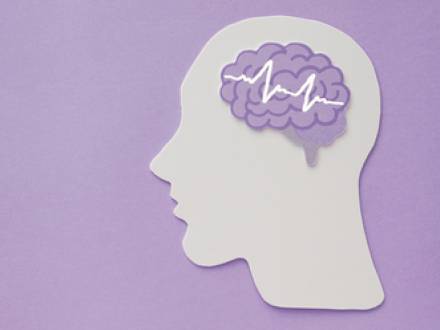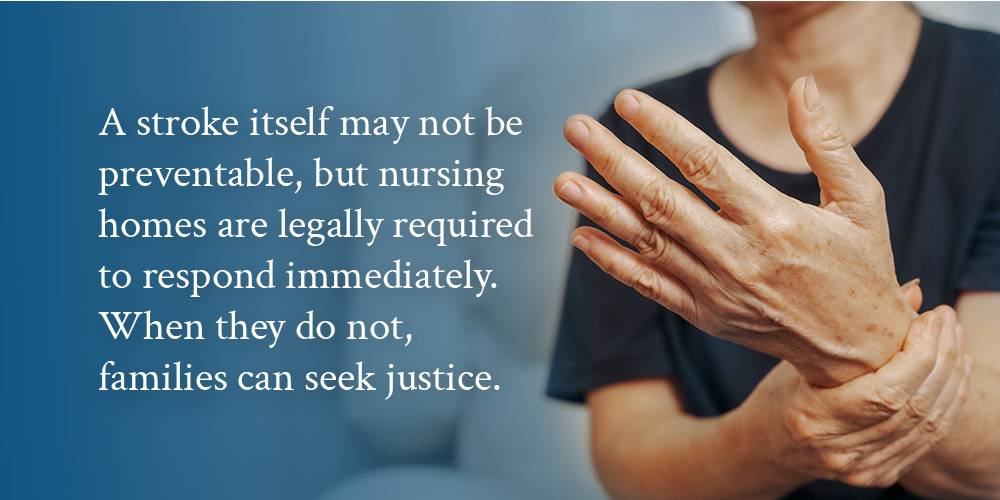My Parent Had a Stroke in a Nursing Home. Is That Normal?
 When someone has a stroke while living in a nursing home, families are often left with questions, fear, and guilt. Was this a medical event that could not have been prevented? Or was it the result of poor care, delayed treatment, or staff negligence?
When someone has a stroke while living in a nursing home, families are often left with questions, fear, and guilt. Was this a medical event that could not have been prevented? Or was it the result of poor care, delayed treatment, or staff negligence?
Of course, strokes can and do happen in elderly populations. They are common medical emergencies among older adults. But in a nursing home setting, what matters most is whether staff recognized the signs, responded quickly, and followed proper medical protocols. In Illinois, nursing homes are legally required to provide adequate care under the Illinois Nursing Home Care Act (210 ILCS 45). If they fail, families may have grounds to hold the facility accountable.
With millions recovered in verdicts and settlements, our large firm of Madison County nursing home injury attorneys has handled many cases where nursing home residents suffered strokes that were worsened by neglect. We offer free consultations and have the necessary resources and experience to help families understand their options.
What Happens When Someone Has a Stroke?
A stroke occurs when blood flow to part of the brain is interrupted, either by a clot (ischemic stroke) or a burst blood vessel (hemorrhagic stroke). Stroke is a leading cause of death and disability in the United States, especially among older adults.
Nursing home residents often present higher stroke risk factors such as high blood pressure, diabetes, heart disease, or limited mobility. That means strokes can occur naturally, even in facilities with strong medical oversight.
But the key question is not just whether a stroke occurred. It is how the nursing home responded. The difference between life, death, and long-term disability often depends on whether staff recognized the symptoms quickly and took immediate action.
Warning Signs of a Stroke that Nursing Home Staff Should Watch For
The signs of a stroke are well known in the medical field. The acronym FAST helps highlight the most important ones:
-
F – Face: Is one side of the face drooping?
-
A – Arms: Is there weakness in one arm?
-
S – Speech: Is speech slurred or hard to understand?
-
T – Time: Time is critical. Immediate medical help is essential.
Other symptoms include sudden confusion, loss of balance, numbness, or severe headache. Nursing home staff should be trained to recognize these signs, and under Illinois law, they are obligated to seek medical help immediately.
The Illinois Nursing Home Care Act requires facilities to provide standard medical care. They are legally required to protect residents from neglect, and promptly notify physicians of changes in a resident’s condition. In addition, the law sets minimum standards for nursing home staffing, training, and emergency response.
Failure to follow these laws may amount to negligence or even abuse. For example, if your parent had a stroke and staff ignored stroke symptoms or delayed calling 911, this could be negligence. Likewise, if understaffing prevented resident monitoring, or a resident’s medical records were incomplete or falsified, it could also be negligence. These failures are not "normal." They may be violations of state law and grounds for a civil lawsuit.
When a Nursing Home Stroke May Be Traced Back to Neglect
Strokes themselves may not always be preventable, but the harm from them often can be. In our experience handling cases in Illinois, nursing home neglect has contributed to devastating outcomes.
Some of the more common situations include:
-
A resident showed early stroke symptoms but staff assumed it was confusion or dementia
-
Staff failed to check on residents regularly, so symptoms went unnoticed for hours
-
Nurses did not contact a physician immediately when a resident’s condition changed
-
Facilities failed to send a resident to the hospital quickly for evaluation and treatment
With strokes, delays of even minutes can mean the difference between recovery and permanent disability or death.
How to Hold Nursing Homes Accountable for Resident Injuries
Families have the right to expect that the nursing home where their loved one lives will act quickly and appropriately during medical emergencies. When facilities fail, Illinois law allows families to seek justice. Residents and their families can file lawsuits for injuries caused by neglect or abuse. These cases may recover damages for medical expenses, pain and suffering, disability, and wrongful death in the most serious cases.
Because our firm has extensive experience and resources, we are able to investigate whether a nursing home’s actions or inactions made a stroke outcome worse. We review medical records, staffing levels, and staff training to determine if the law was broken.
One of the biggest problems we see in Illinois nursing homes is understaffing. Too few nurses and aides means residents do not get the attention they need. In stroke cases, this can mean staff miss the warning signs or wait too long to take necessary action.
Illinois regulations require facilities to maintain staffing levels that are adequate to meet residents’ needs. Yet many homes cut corners to save money, putting residents at risk. When staffing shortages contribute to delayed stroke response, families may have a strong legal case for negligence.

What Families Should Do After a Loved One Has a Stroke in a Nursing Home
If your parent had a stroke in a nursing home, you may feel unsure of what to do next. First, make sure you have copies of all medical and nursing records. These will be an important part of checking on your loved one’s care and condition. Make sure you ask staff to explain when symptoms began and what actions were taken. Write things down so you do not forget important details.
Then, speak to your parent’s treating physician or hospital doctors for their opinion. If you still get the sense that something went terribly wrong, contact an experienced nursing home injury attorney to review the case. Families should not feel alone in their fight for answers.
Contact a Madison County, IL Nursing Home Wrongful Death Lawyer
If your parent suffered a stroke in a nursing home and you are questioning whether it was handled properly, you are right to seek answers. A Will County, IL nursing home injury attorney at Schwartz Injury Law can review your case, explain your rights under Illinois law, and fight for compensation.
Our firm has decades of experience, a record of millions recovered for clients, and the resources to take on large facilities. Call 312-535-4625 today to schedule your free consultation.

 312-535-4625
312-535-4625





